The 'caravans of love' visiting Spain's empty villages
- Published
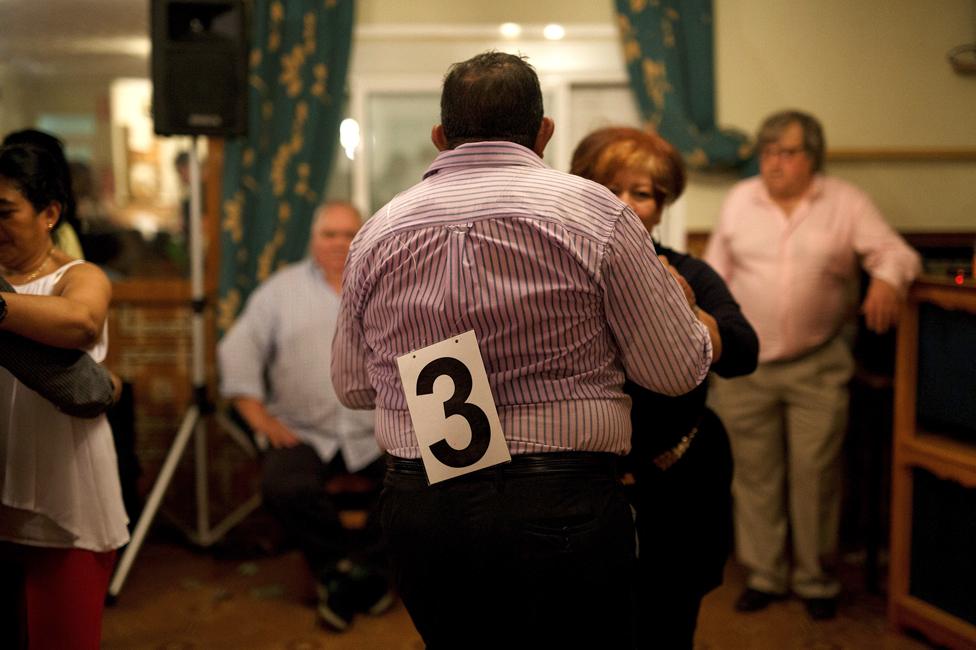

Spain is ground-zero for rural depopulation within the European Union. Over decades, millions have migrated to the cities to find jobs. Those left behind in villages are often elderly - or they are single men working in agriculture. So, how does a lonely Spanish shepherd find love?
The ancient stone cottages of Pradena de Atienza, tumble down the sides of a valley. Antonio Cerrada is 52 and has worked here, with animals, all his adult life. Like his father and grandfather before him, his days are spent tending goats on the farm he runs with his brother.
Antonio's home may be just a two-and-a-half-hour drive north from Madrid, but with its bare mountains and the icy winter wind it feels much further.
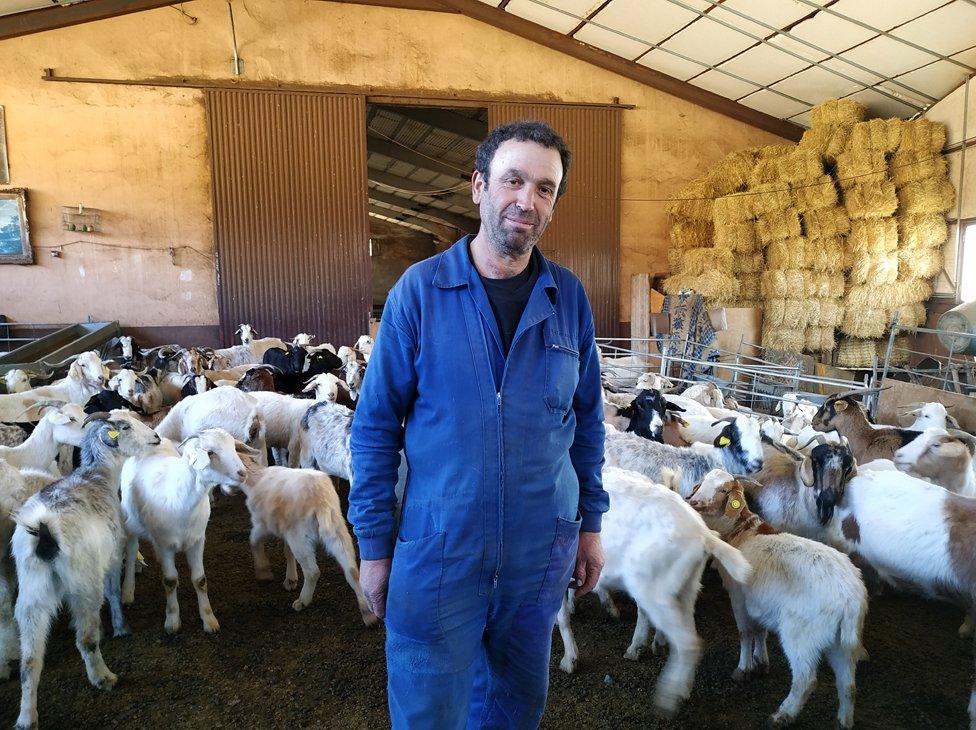

"If it wasn't for me and my brother, this village would have been abandoned a long time ago," he says.
Fewer than 10 people live year-round in Pradena de Atienza. Antonio has seen dozens of his neighbours up sticks for a new life in the city. He never wanted to leave - but he longed for a partner. And in his 30s, he began looking in earnest for a woman who would not be put off by life in an almost-deserted village.
It wasn't easy.
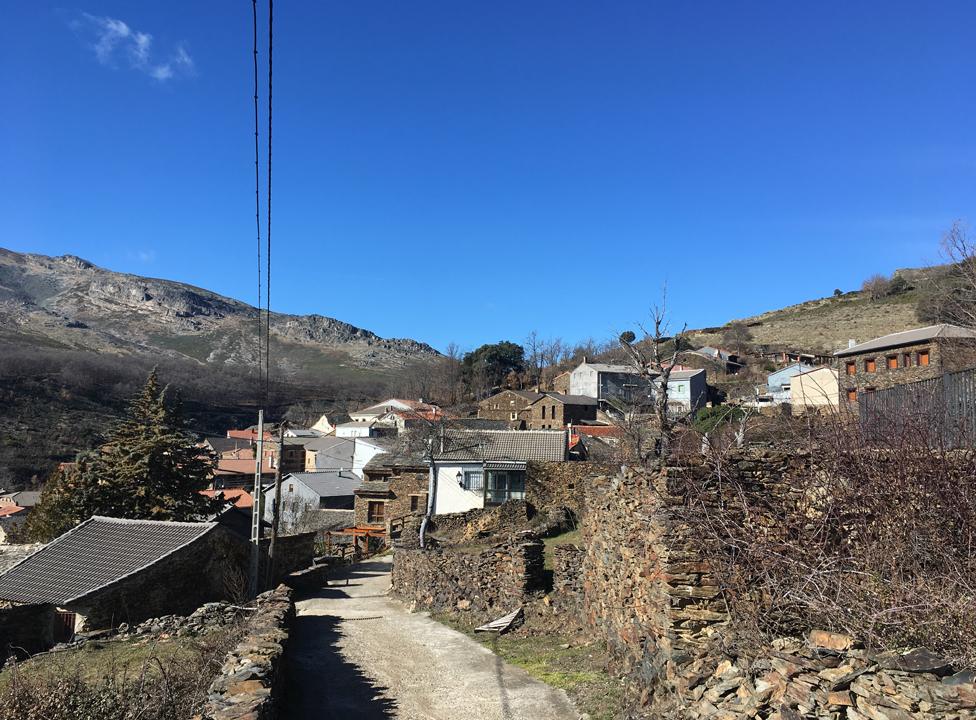

"There was a television programme - Farmer Seeks Wife, or something. It was on TV on a Tuesday. I wanted to go on that programme," he says.
It didn't happen. Then Antonio heard about the Caravan of Women - or Caravan of Love, as it is sometimes known.
This is a commercial initiative bringing coach-loads of single women from Madrid to meet unattached men in the countryside at organised dinner-dances. Manolo Gozalo has been co-ordinating these excursions with his partner, Venecia Alcantara, since 1996.
The couple are perhaps their own best advert - they fell for each other during one of Manolo's first Caravans.
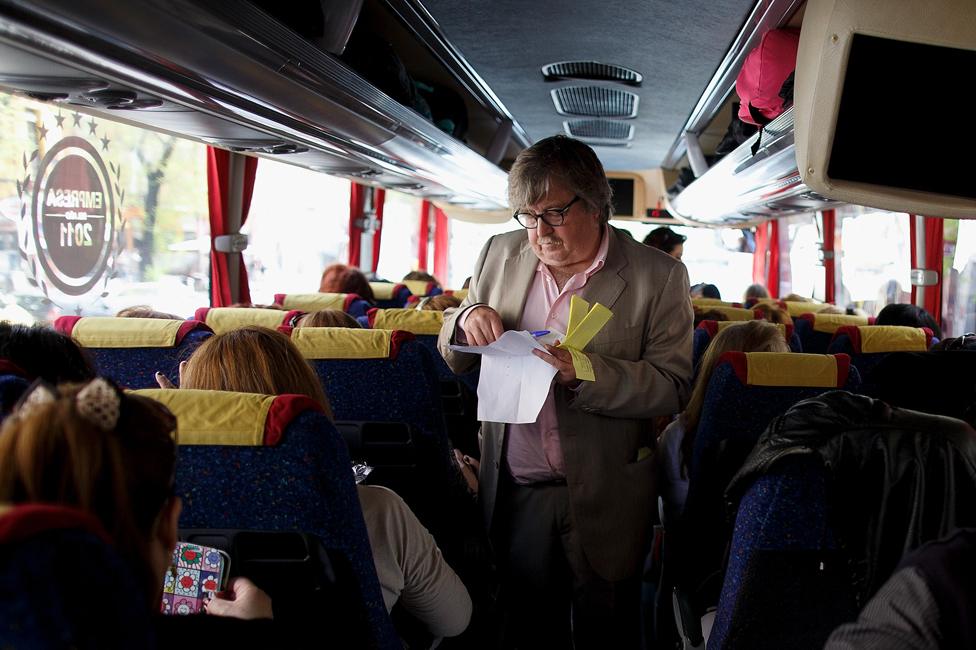
Manolo Gozalo checks tickets

"We've organised around 600 parties so far… Maybe 180 couples have formed relationships. Of course, not all of them have lasted, but around 100 couples are still together," says Manolo.
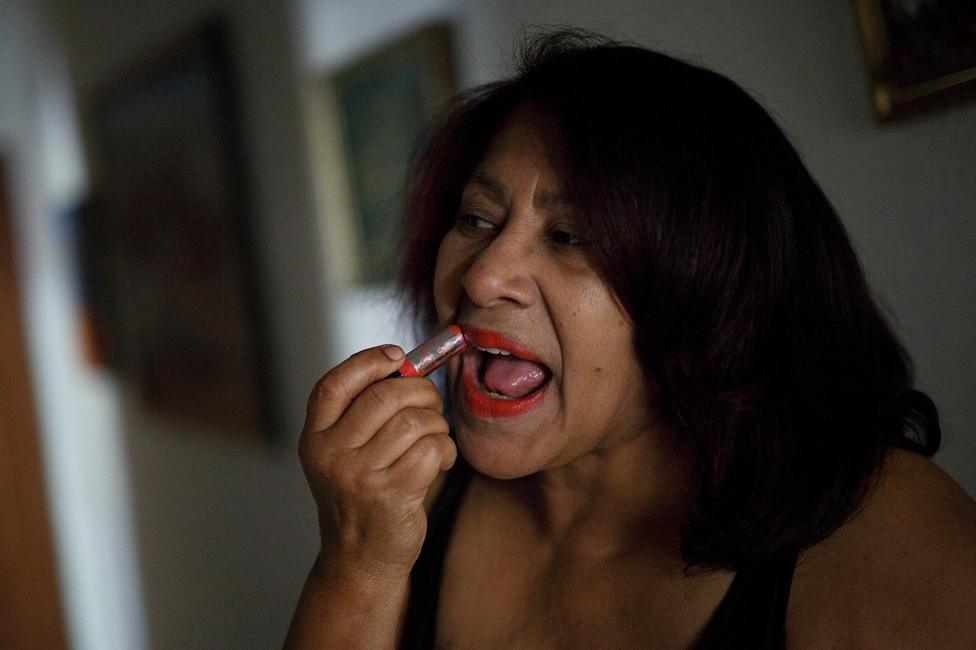
Venecia Alcantara prepares for an evening's entertainment

When Antonio read the Caravan was coming to a restaurant in a village nearby, he dumped his overalls, scrubbed up, and headed out. Maria Carvajal, a Colombian living in the capital, was the last to get off the bus.
"We were all dancing, and Antonio kept looking at me," she remembers. "So I said to him, 'Do you want to dance?' He told me he didn't know how to… So I went and sat down again. But he just didn't stop staring at me! That's how it all started."
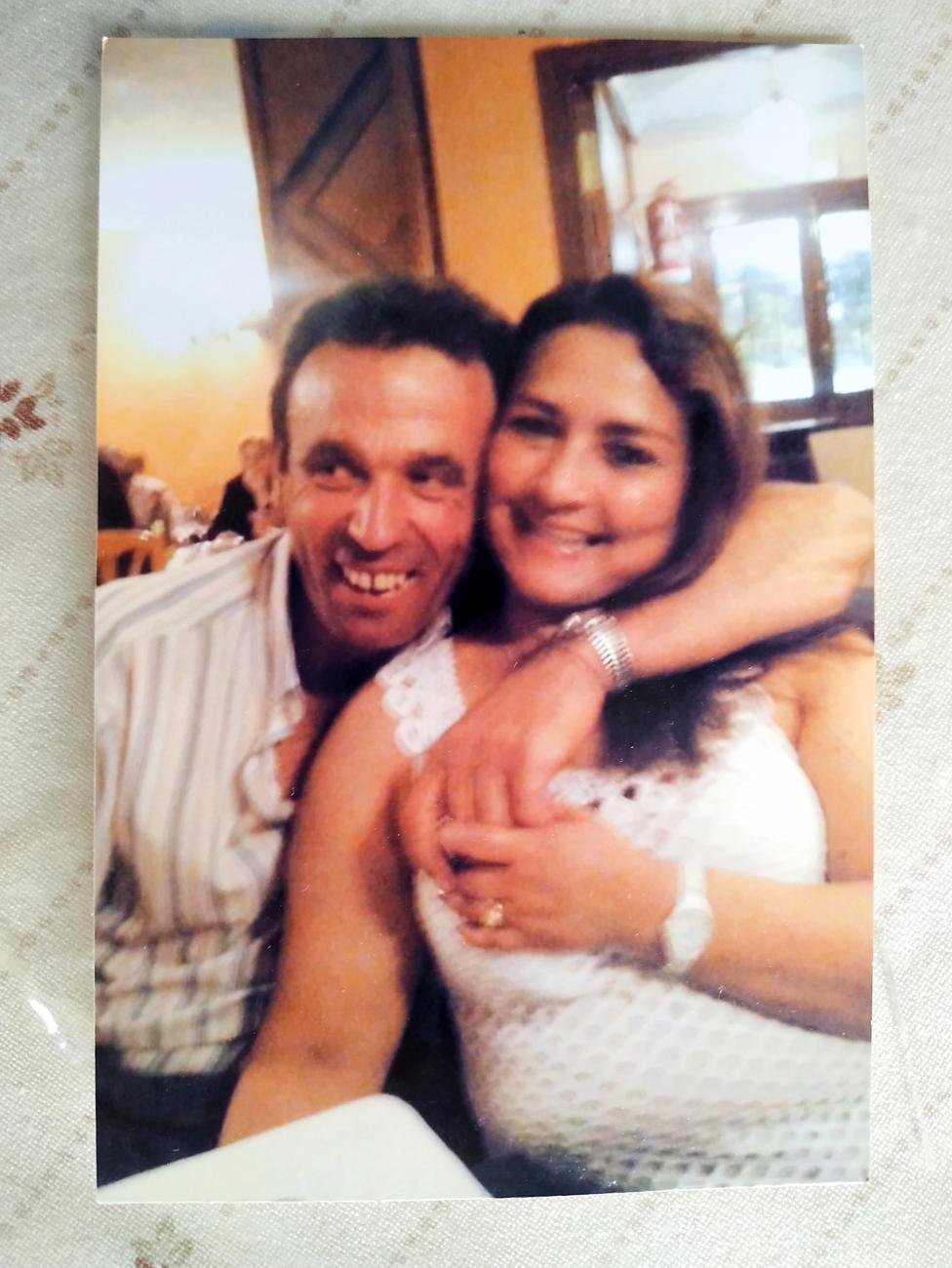
Antonio and Maria, the first time they met

At dinner Antonio and Maria sat at the same table - a spark was lit.
"We talked and talked. Then we talked some more," recalls Antonio.
His shyness had dissolved by the time the music started again.
"We went downstairs to dance, drank some beer, and that was it!"

Find out more
Listen to Empty Spain and the Caravans of Love, Linda Pressly's report for Assignment on the BBC World Service

The couple arranged to meet a fortnight later at another Caravan party in the region. Then Antonio invited Maria to visit Pradena de Atienza for a weekend. He booked a rural hotel for just the two of them, and showed Maria around.
Antonio was relieved that Maria took to the almost-empty village immediately.
"I liked the tranquillity," she says simply.
And after working for more than a decade in Madrid as a cleaner, she was ready for a change.
"When I first arrived from Colombia, I would sometimes go dancing with my friends in Madrid. But after a while I was just going from home to work, from work to home."
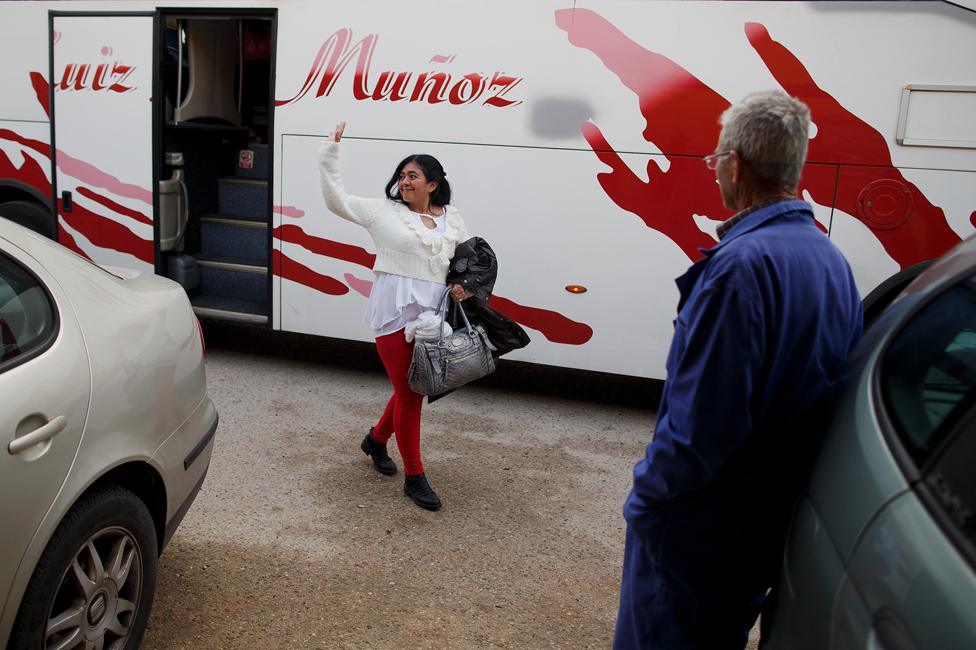
A farmer watches the women arrive

Maria counts herself lucky.
"The friend I travelled with on the Caravan attended a lot of those parties over many months. She met a lot of people, but she never found anyone special. I met Antonio the first time I went."
The impetus for the caravans was rural depopulation - to encourage relationships between women from the cities with the men left behind in villages.
Rural outward migration began in earnest under Franco's dictatorship at the end of the 1950s, when factory jobs in urban areas offered opportunities to those arriving from farming communities. Now, the survival of more than 4,000 of Spain's rural hamlets and communities hangs in the balance - 1,300 municipalities have fewer than 100 people.
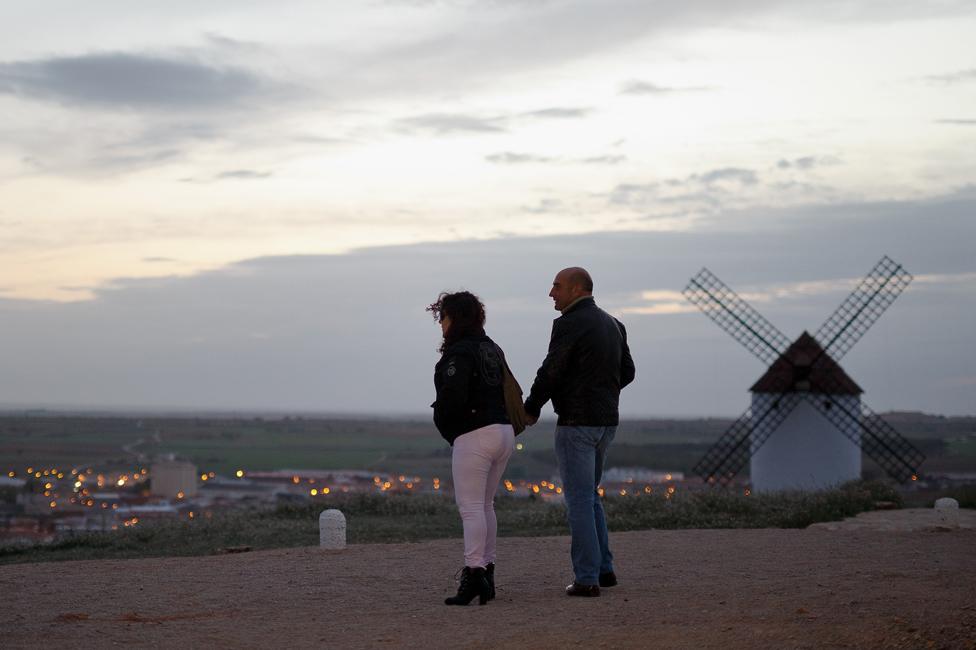

But the caravans have also courted controversy. Critics say transporting women across Spain for the pleasure and enjoyment of men "commodifies" them. And the fact that most of those on the Caravans are migrants - from Latin America and Eastern Europe - makes them more vulnerable. More than once, buses have been daubed with graffiti - Caravana Machista (the Macho Caravan) and La mujer no es ganado (a woman is not cattle).
In spite of the disapproval, Manolo Gozalo continues to organise one caravan a month. And even in an age of internet dating and hook-up apps, there is still take-up.
"People want to meet each other in real life - this is the advantage of the caravans," he says.
"There are lots of companies organising singles nights in the cities, but we just do it in the countryside where there are still so many single men. And a lot of those men don't know how to use the internet - some of them can barely use a mobile phone."
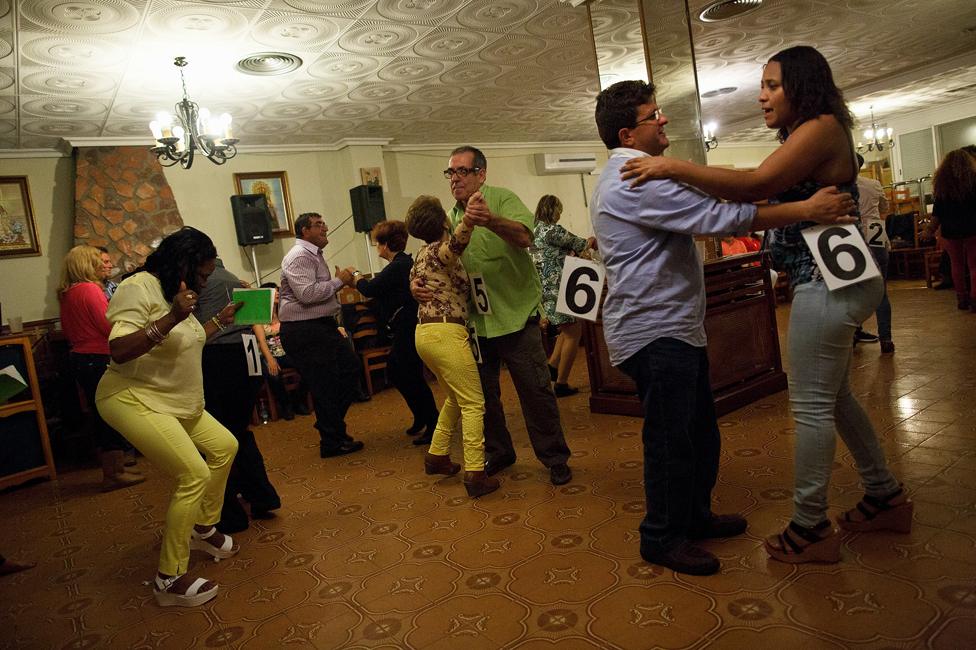

It is nearly six years now since Antonio and Maria met. Antonio is still hugely excited at finding love after looking for so long. And there's something else that's new - a toddler, also Antonio, born nearly 18 months ago.
"It's so exciting to see him when I get home from work - to see how he's doing, to play with him… I'm out with the animals all day, and then in the evenings I have someone to talk to… It's like a home now, not just somewhere to live," Antonio says.
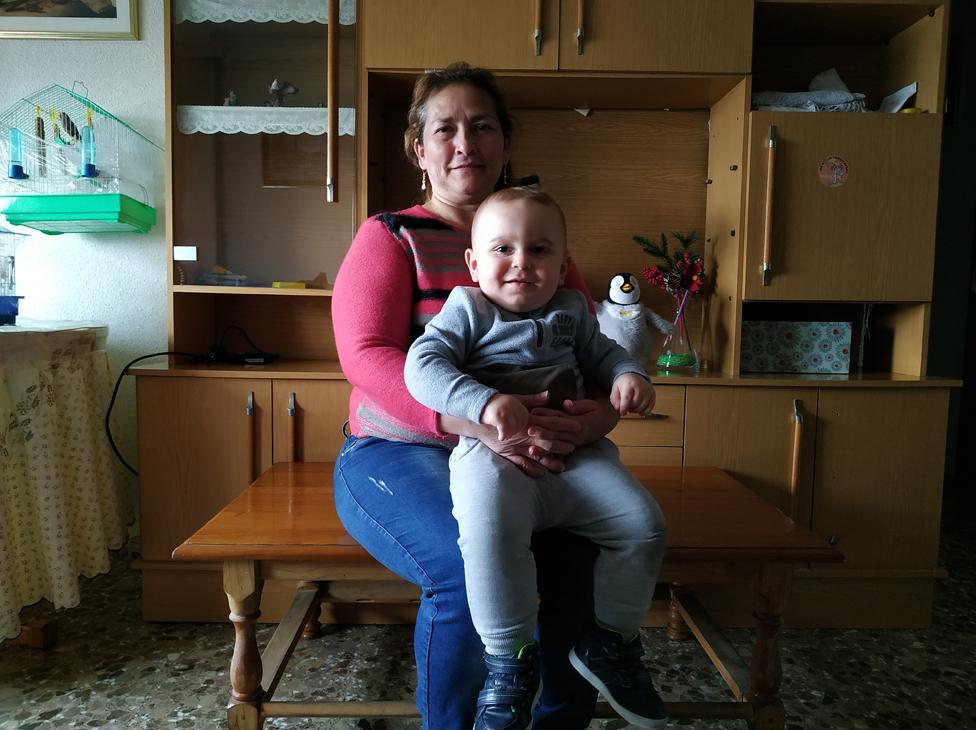

So are they thinking about more additions to the family?
"No, no, no," says Maria laughing.
"I'm 51 now - I had little Antonio when I was 50, and fell pregnant when I was 49. I already have a daughter of 31, and I have grandchildren older than this one! So there are no more kids coming at my age! But Antonio wanted a child."
For Antonio Cerrada the novelty of being a parent has not worn off - he is enjoying every minute. And he is sanguine about the future, and whether his son will be one of those who helps to keep the village of Pradena de Atienza alive, or whether - like so many others - he leaves for the city.
"I'm going to leave my roots here for him just as my father left his roots for me. And if he wants to follow tradition in the village, well that's up to him."
You may also be interested in:
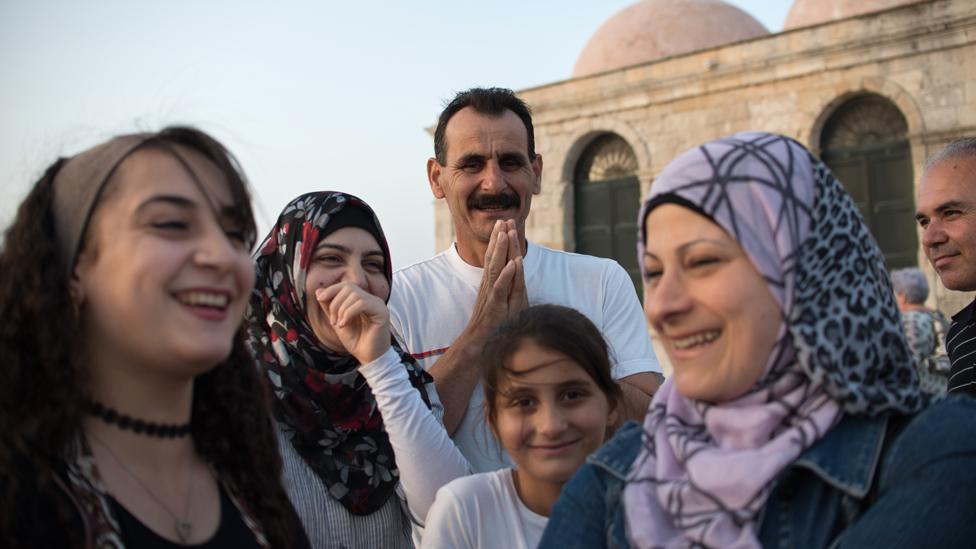
When a Syrian stonemason and his family were granted asylum in Greece in 2017 they immediately made their way to the island of Crete - completing a journey begun by their great-grandparents 130 years ago.
Read: Coming home after 130 years
Join the conversation - find us on Facebook, external, Instagram, external, YouTube, external and Twitter, external.
